We recently connected with Natalie Saiia and have shared our conversation below.
Hi Natalie, really happy you were able to join us today and we’re looking forward to sharing your story and insights with our readers. Let’s start with the heart of it all – purpose. How did you find your purpose?
Entering a public restroom my sophomore year of high school, I noticed a crowd gathered around a period product dispenser. Curious, I approached and saw a young unhoused young-woman not too much older than me. Her pants were stained, and she was desperately attempting to purchase a tampon out of a broken machine with her last quarter.
Witnessing her struggle and the collective scramble of women digging through their bags to help her, a realization hit me: the lack of free accessible period products is a real problem. In that moment, I understood that what should be a basic necessity had become a barrier—preventing people from going to work, school, or simply moving through their day with dignity.
This moment sparked the idea for Cycle Sisters and our dedication to making sure no one is left behind when it comes to something as fundamental as their period. Because managing menstruation shouldn’t depend on having exact change for a machine that may or may not work.
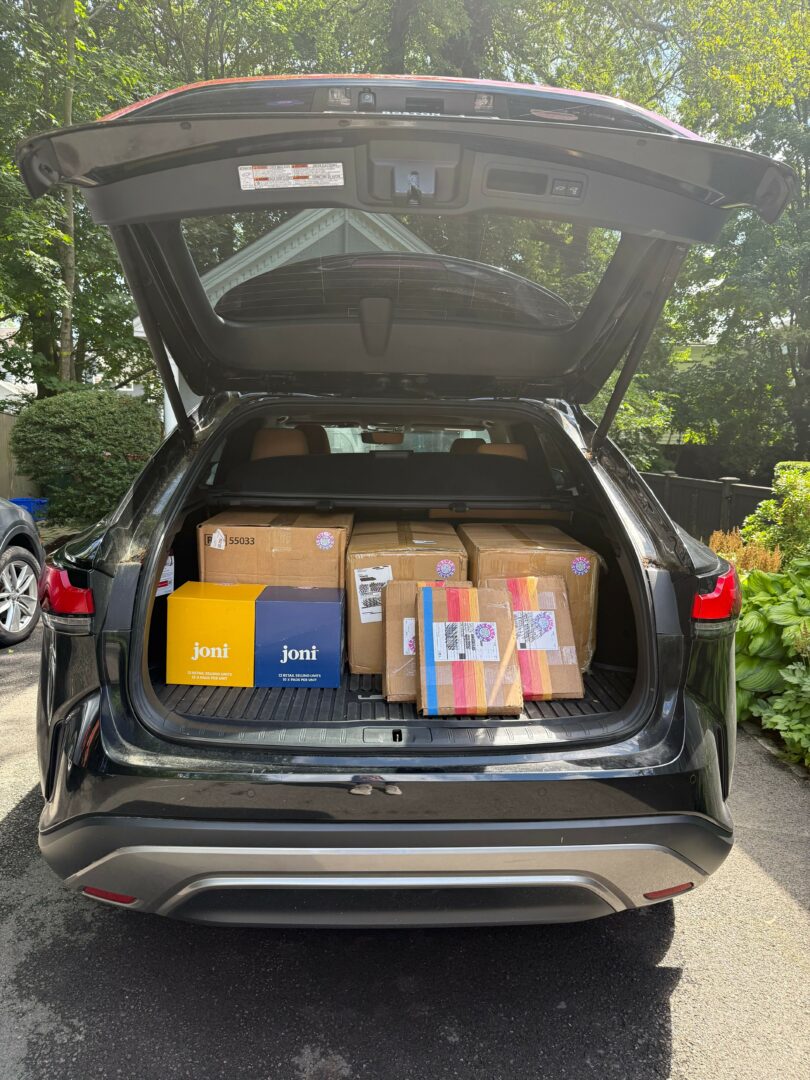
Let’s take a small detour – maybe you can share a bit about yourself before we dive back into some of the other questions we had for you?
My Journey as a Young Changemaker
My whole life, I’ve pushed the boundaries of what’s been expected. Age is just a number—and I’ve never let it define what I can accomplish. While my peers were navigating typical teenage concerns, I was founding a nonprofit, testifying before state legislators, and building partnerships with international companies. But this drive for impact didn’t come from nowhere.
Growing up in Boston while facing serious medical challenges taught me that adversity either breaks you or builds your capacity for empathy. When I spent hundreds of days in hospital care over the years, I learned that meaningful change happens when you transform personal struggle into a purpose that serves others. This understanding shifted my perspective from patient to powerful advocate.
What Cycle Sisters Does:
Cycle Sisters is a youth-led nonprofit I founded as a sophomore to combat period poverty—the inability to afford menstrual products. What started as witnessing a young person desperately trying to get a tampon from a broken dispenser has grown into a comprehensive advocacy organization that has distributed over 70,000 menstrual products with 35+ partners and shelters.
But we’re not just about product distribution. We’re about dignity, equity, and refusing to let anyone feel powerless because of their biology. What makes our work especially meaningful is our youth-to-youth impact model. Throughout the past year, I’ve witnessed the transformative power of our comprehensive approach at Bridge Over Troubled Waters, where we serve as the exclusive menstrual product distributor. When young people receive not just period products but also pain relief care through our partnership with Spicey, their entire demeanor changes—shoulders back, head up. I find it so special to be able to extend support to peers—we all should have the same opportunities. That transformation tells the real story of our impact.
What Makes Cycle Sisters Special:
We don’t just provide products, we create systemic change. We’ve pioneered innovative partnerships that other organizations now model:
Holistic Care Partnership: Our collaboration with Spicey represents a shift in how we approach period equity. As someone who lives with pelvic floor dysfunction, I understand firsthand that menstrual products alone aren’t sufficient—period care must address the full spectrum of needs including pain management and comfort. This partnership brings 6,000+ collective hours (500 Heat Patches) of comprehensive pain relief and care to young people, recognizing that true equity means addressing every aspect of the menstrual experience. We’re not just providing supplies; we’re reimagining what complete menstrual wellness looks like for vulnerable populations who deserve comfort, consistency, and access to support that should never be out of reach. We hope that this holistic model can set a new standard for period poverty organizations nationwide.
International Collaboration: As the youngest partner for joni (a Canadian sustainable period brand), we’ve secured thousands of donated products and I was invited to contribute to their revolutionary 2025 publication “BLEED”
Legislative Impact: We co-sponsor the campaign for Massachusetts’ I AM Bill (S.2491/H.534), and I are one the youngest advocate to testify before state legislators for menstrual equity.
The Bigger Picture:
Cycle Sisters isn’t really about periods—it’s about recognizing that basic human needs shouldn’t be luxuries. My own health journey taught me that when your body fails you, dignity becomes even more precious. Every person deserves to manage their period with pride, not panic.
As I prepare for college, I’m committed to scaling this impact. The relationships we’ve built with shelter staff, the trust we’ve earned in communities, and the innovative partnerships we’ve forged—like our comprehensive care model with Bridge Over Troubled Waters and Spicey—create a foundation for long-term change that extends far beyond my high school years.
What started as witnessing someone’s struggle has grown into a movement that recognizes period equity as just the beginning. Through partnerships that address both access and pain relief, we’re redefining what comprehensive menstrual care looks like and proving that young advocates can create lasting systemic change.
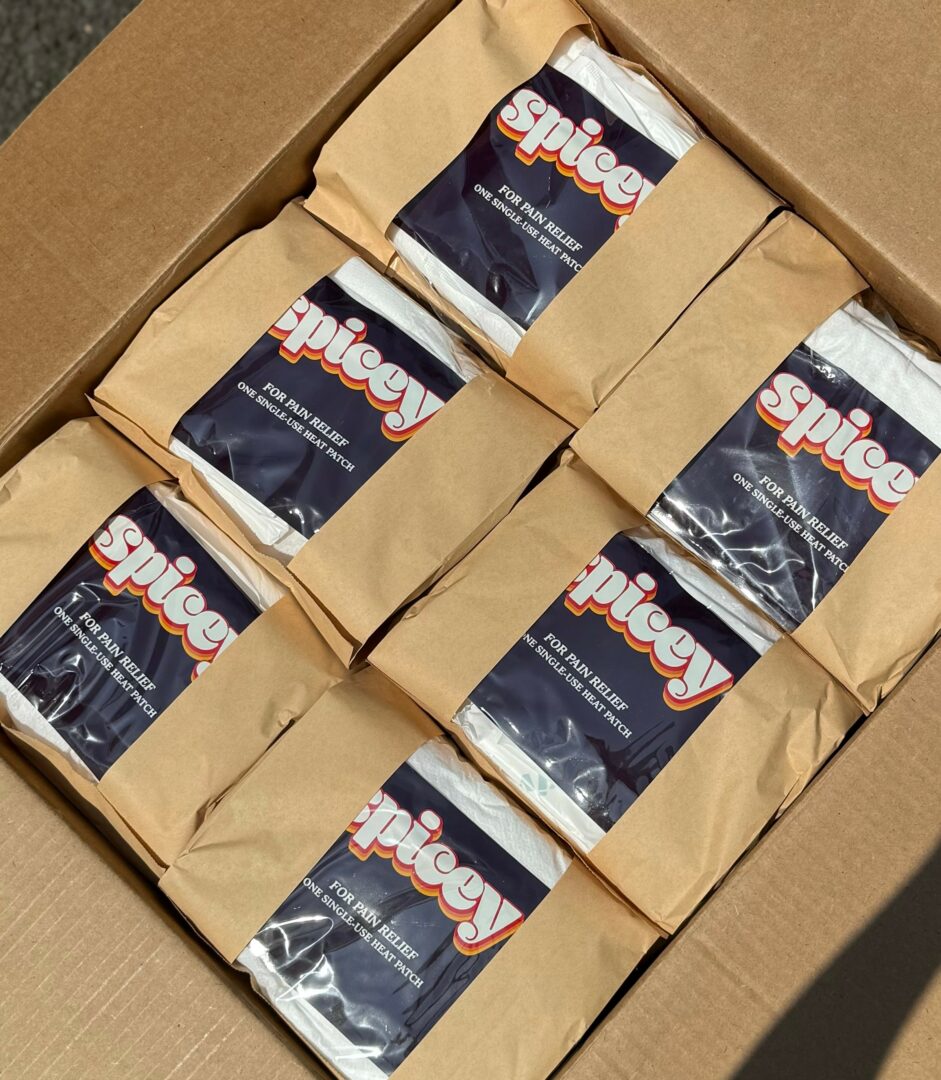
Looking back, what do you think were the three qualities, skills, or areas of knowledge that were most impactful in your journey? What advice do you have for folks who are early in their journey in terms of how they can best develop or improve on these?
Stubborn: I’ve realized that being stubborn is actually one of my biggest strengths. When I saw that woman at the dispenser, I couldn’t just move on like most people would. This voice inside me kept saying “this is completely unacceptable” and I refused to let it go. I’ve had so many adults tell me I’m too young to tackle something this big, or that period poverty is just too complex for a teenager to address. But honestly? That just made me more determined. My stubbornness means I don’t give up when people dismiss me or when obstacles seem impossible.
What I’d tell others: Listen to that voice that tells you something isn’t right, even when everyone else seems to accept it. Just make sure you’re being stubborn about fixing the actual problems, not about doing things exactly your way.
Adaptable: Plans almost never go exactly how you expect them to. My original vision for Cycle Sisters has evolved so much from where I started because I had to adapt to what was actually possible and what communities actually needed. Sometimes a partnership falls through last minute, or funding doesn’t come through, or a distribution method that worked in one area completely fails in another. I’ve gotten good at pivoting quickly without losing sight of the bigger mission. Being adaptable has meant learning when to push forward and when to completely change course.
What I’d tell others: Stay flexible with your methods even when you’re unwavering about your goals. The best solutions often come from adapting to obstacles rather than trying to bulldoze through them. Talk to the people you’re trying to help – they’ll often show you better approaches than whatever you originally planned.
Persuasive: Changing minds about period equity isn’t just about presenting facts – it’s about helping people connect emotionally with an issue they might have never considered. I’ve had to find ways to make community leaders care about accessibility issues, help donors understand that this is about dignity not just products, and convince skeptical adults that a teenager can actually run an effective organization. I think my age sometimes works in my favor because people aren’t expecting polished corporate speak – they’re hearing raw passion about an issue I genuinely believe needs to change.
My advice: Your authentic story is more powerful than any statistics. Learn to read your audience and adjust your approach, but never lose sight of why you started. People can always tell when you’re speaking from the heart versus when you’re just trying to sound impressive.
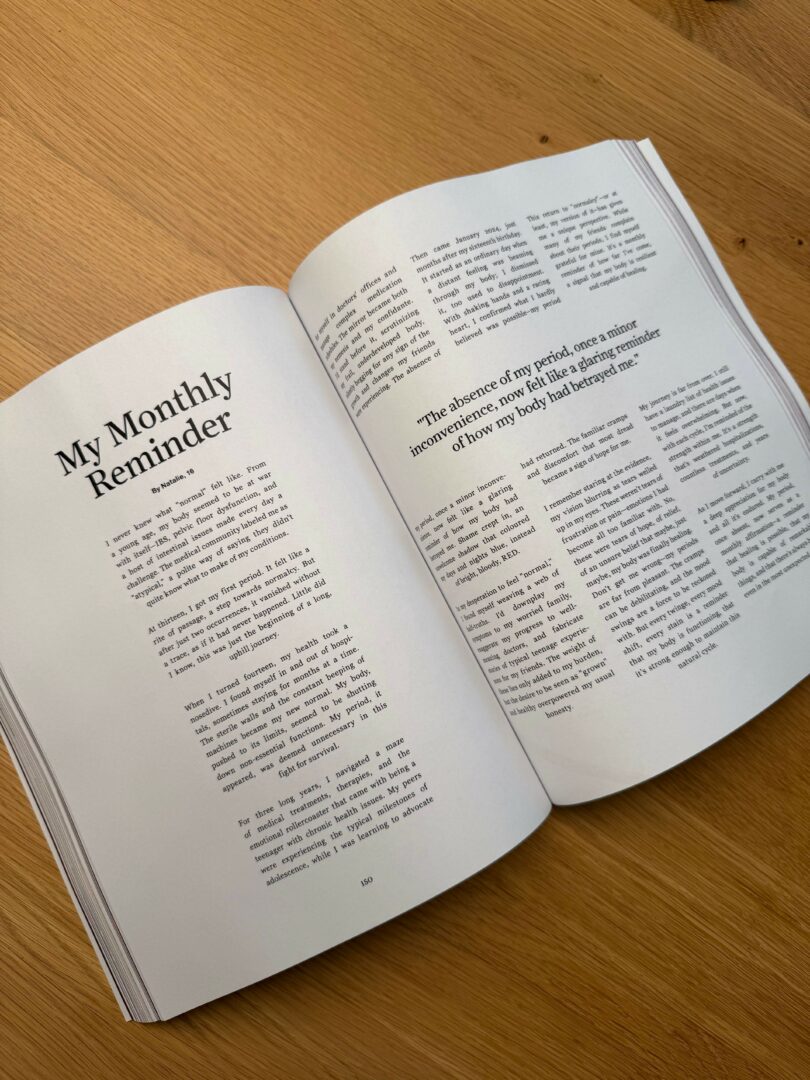
If you knew you only had a decade of life left, how would you spend that decade?
If I knew I only had a decade of life left, I would spend it doing exactly what I’m doing now – building Cycle Sisters and fighting for period equity.
I’d pour everything into expanding access to period products, supporting more people in need, and working toward a world where no one has to choose between dignity and basic necessities. Every partnership formed, every person helped, every barrier broken down would feel even more meaningful knowing time was precious.
The decade wouldn’t be about changing course – it would be about deepening my commitment to this cause that chose me as much as I chose it. Cycle Sisters isn’t just my work, it’s my purpose. Even with limited time, I can’t imagine spending it any other way.
Contact Info:
- Website: https://www.cyclesisters.org/
- Instagram: Cyclesistersbos | https://www.instagram.com/cyclesistersbos/?igsh=MXZydDljZTJtZWwwMA%3D%3D&utm_source=qr
- Linkedin: https://www.linkedin.com/in/nataliesaiia?trk=public_post_follow-view-profile
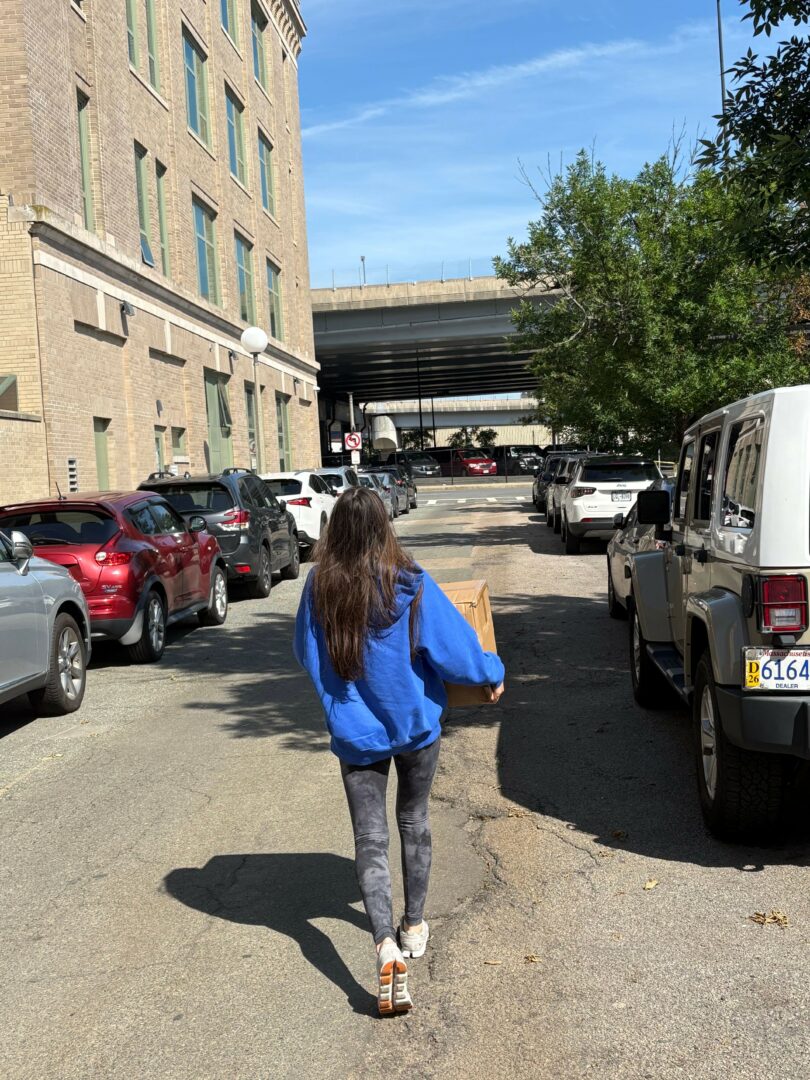
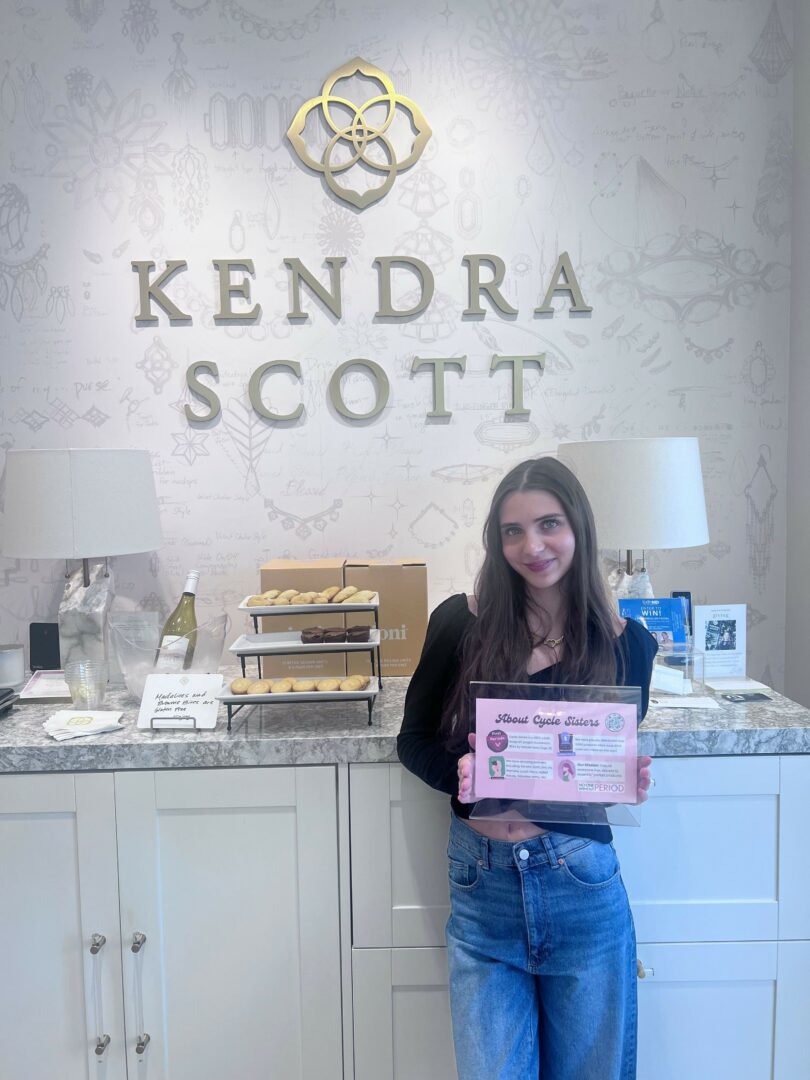
so if you or someone you know deserves recognition please let us know here.




